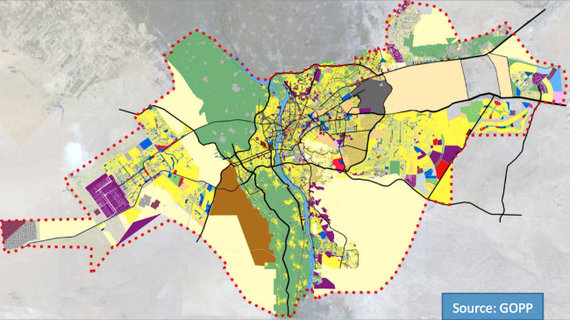What might cities in the Global South look like in the future, and what will it take to turn ideas into reality? Meet four innovative urban experts who shared with URB.im their knowledge, vision(s) for their cities, and the challenges they face in bringing about change. An architect, an urban planner, a university professor, and even a world-renowned chef gave us their take on urban issues in Mumbai, Mexico City, Cairo, and São Paulo. Read on to learn more, and then join them on URB.im to share your thoughts.
PK Das, one of Mumbai's best-known architects, has always put social change at the heart of his work. After arriving in the city in 1972 to study architecture, it wasn't long before he became involved in slum dweller and anti-corruption movements. Das' current focus is on the need to improve open spaces and affordable housing in the city, always in partnership with the affected communities. "We are grabbing space and trying things, bringing about alternative models, working with slum movements. This is the democratic process that has opened up. If you are engaged in the democratic process, then hope is inevitable," said Das. His success with this collaborative model on a neighborhood scale has helped Das prove that more wide-scale projects, such as the recapturing of open spaces in Mumbai, are possible as well. Das' 2012 Open Mumbai exhibit showed that 55 percent of the city's landmass is covered in natural assets and open spaces. Open Mumbai's proposals have been taken up by the Chief Minister and are en route to becoming part of Mumbai's official development plan for the next 20 years.
What does Cairo look like from an urban expert's point of view? URB.im spoke with Dr. Sahar Attia, Chair of the Department of Architecture at the Faculty of Engineering at Cairo University, about the current state of city planning and services in the Greater Cairo Region. When asked how she would characterize social inclusion in Cairo, Dr. Attia pointed out that, unlike many cities, it is Cairo's informal settlements that dominate the urban center while the wealthy now increasingly live in planned communities on the periphery. This creates unique challenges when it comes to fostering inclusivity, but Dr. Attia described how accessibility for all residents could be expanded by improvements like mixed-use facilities in the center of the city, continued upgrades to public transportation, and an official land use plan that will help planners control urban sprawl.
Enrique Betancourt Gaona is an urban planner from Mexico City who has been involved in a wide range of development projects at both the city and federal levels. With regard to urban development in Mexico City, especially for its most vulnerable communities, he sees consensus-building and citizen engagement as the key to successful outcomes. He stressed, "It is important to understand these interventions from a logic of gradual change, with a special emphasis on the process." He pointed out how in marginalized areas of Latin American cities, the traditional markers of urbanization are absent: residents aren't perceived as citizens, streets don't have names, houses don't have numbers, and basic infrastructure doesn't exist. Mr. Betancourt called for a new approach to urban planning in Mexico City where improvements and services are delivered in a decentralized way so that marginalized communities begin to think of themselves as part of the larger city and benefit from its resources.
Alex Atala is one of the world's top chefs and a pioneer of using Brazilian ingredients in haute cuisine, but he also directly influences his native São Paulo with his activism around innovation and education, local food systems, and access to culture and play for all city residents. At the 2013 New Cities Summit in São Paulo, Atala talked about the need to create greater opportunities for young people -- to provide the education and resources that make innovation possible. He also promotes greater access to food for all citizens. In addition to his career as a chef, he is a vocal advocate for street food and traditional cooking, and his work as a food researcher led him to found the ATÁ Institute, which studies how to strengthen local food systems as well as how to make food more sustainable and accessible. Atala also sponsors initiatives that bring people together throughout São Paulo and supports the expansion and upgrading of public spaces.
Despite the great distances between their respective cities, these four experts emphasize similar themes when it comes to the futures of Mumbai, Mexico City, Cairo, and São Paulo: the need for broad consensus on the vision for a city, citizen engagement in urban improvement, and urban spaces that are more accessible and inclusive. Visit >URB.im to read the full conversations and join the discussion.
